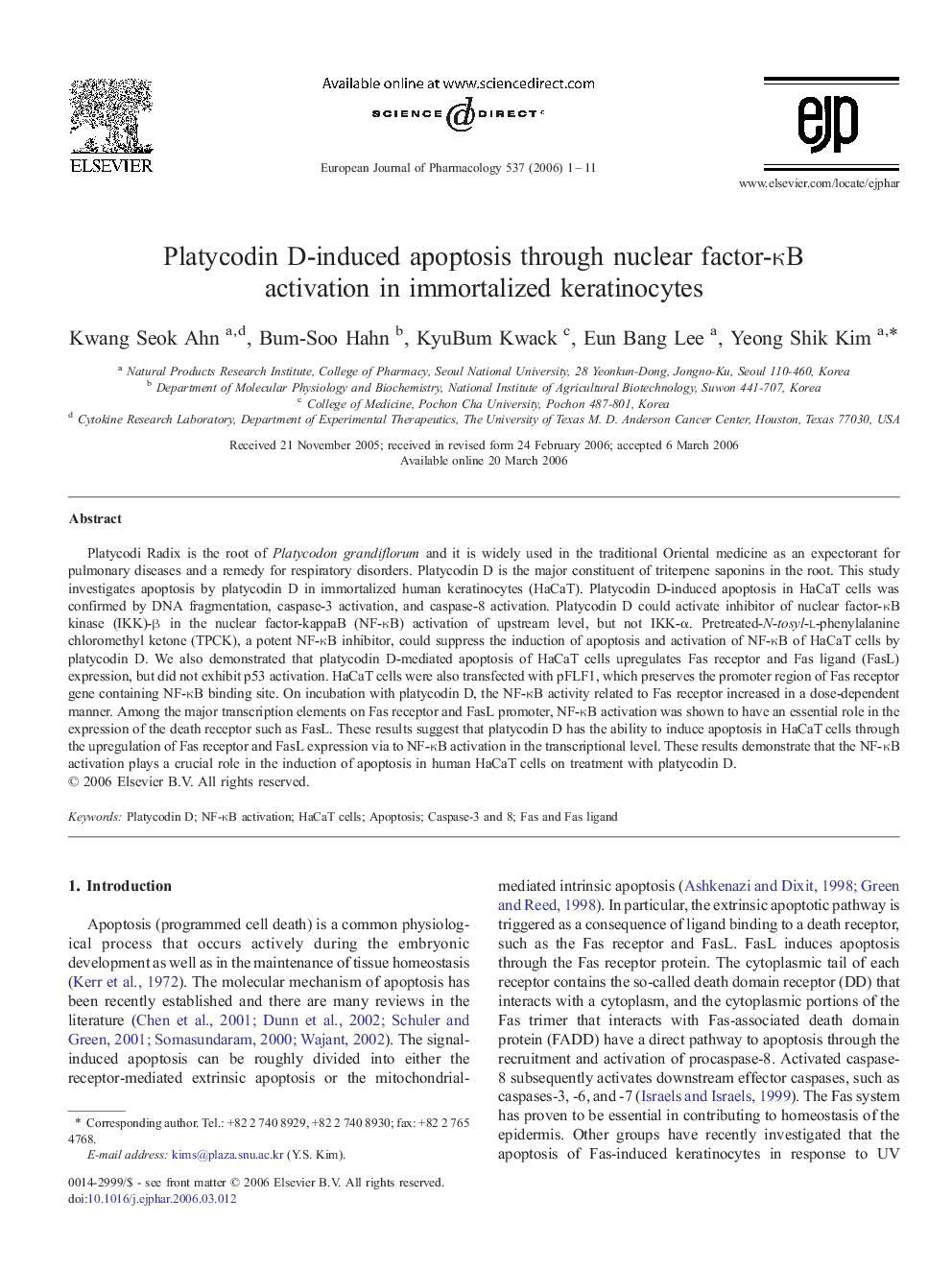| Article ID | Journal | Published Year | Pages | File Type |
|---|---|---|---|---|
| 2537277 | European Journal of Pharmacology | 2006 | 11 Pages |
Platycodi Radix is the root of Platycodon grandiflorum and it is widely used in the traditional Oriental medicine as an expectorant for pulmonary diseases and a remedy for respiratory disorders. Platycodin D is the major constituent of triterpene saponins in the root. This study investigates apoptosis by platycodin D in immortalized human keratinocytes (HaCaT). Platycodin D-induced apoptosis in HaCaT cells was confirmed by DNA fragmentation, caspase-3 activation, and caspase-8 activation. Platycodin D could activate inhibitor of nuclear factor-κB kinase (IKK)-β in the nuclear factor-kappaB (NF-κB) activation of upstream level, but not IKK-α. Pretreated-N-tosyl-l-phenylalanine chloromethyl ketone (TPCK), a potent NF-κB inhibitor, could suppress the induction of apoptosis and activation of NF-κB of HaCaT cells by platycodin D. We also demonstrated that platycodin D-mediated apoptosis of HaCaT cells upregulates Fas receptor and Fas ligand (FasL) expression, but did not exhibit p53 activation. HaCaT cells were also transfected with pFLF1, which preserves the promoter region of Fas receptor gene containing NF-κB binding site. On incubation with platycodin D, the NF-κB activity related to Fas receptor increased in a dose-dependent manner. Among the major transcription elements on Fas receptor and FasL promoter, NF-κB activation was shown to have an essential role in the expression of the death receptor such as FasL. These results suggest that platycodin D has the ability to induce apoptosis in HaCaT cells through the upregulation of Fas receptor and FasL expression via to NF-κB activation in the transcriptional level. These results demonstrate that the NF-κB activation plays a crucial role in the induction of apoptosis in human HaCaT cells on treatment with platycodin D.
